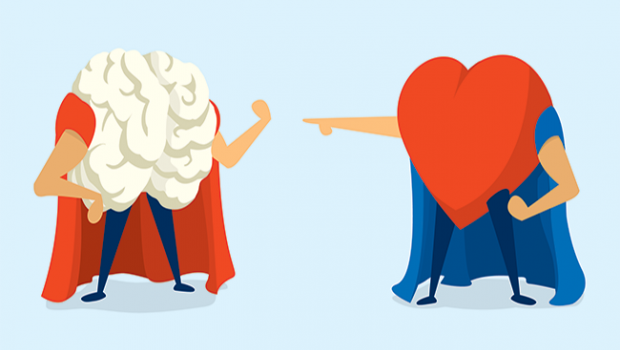
Emotional variations
I am Shilpi Patel, a 25 year old science graduate and computer professional. Since two years, I have left working and am passing my time at home doing small errands. I have found that my mood keeps on varying the entire day. I am cheerful in the morning, but irritated in the afternoons. Sometimes there is a sadness right from the morning. I also get very angry and am happy also. However, I am finding it difficult to manage my moods. I feel that I have got into a negative cycle of grievances and holding people responsible for it. Please advise.
Indeed, keeping our distressing emotions in check is the key to emotional well-being; extremes – emotions that wax too intensely or for too long – undermine our stability. Of course, it is not that we should feel only one kind of emotion; being happy all the time is bland. There is much to be said for the constructive contribution of suffering to creative and spiritual life; suffering can temper the soul. Downs as well as ups spice life, but need to be in balance. It is the ratio of the positive to negative emotions that determines the sense of well-being. It is not that people need to avoid unpleasant feelings to feel content, but rather that stormy feelings not go unchecked, displacing all pleasant moods. People who have strong episodes of anger or depression can still feel a sense of well-being if they have a countervailing set of equally joyous or happy times. Just as there is a steady murmur of background thoughts in the mind, there is a constant emotional hum; at various times of the day we are in different but consistent moods. For someone, the mornings may be relatively hassled and the afternoons relaxed with evenings being frolicky, while for somebody else the moods may be more intense in the evenings. Of course on any two mornings, someone can have different moods, but when averaged over weeks to months, they tend to reflect the overall well-being. It turns out that for most people, extremely intense feelings are relatively rare; most of us fall into the gray middle range, with mild bumps in our emotional roller coaster. Still, managing our emotions is something of a full time job; much of what we do – especially in our free time – is an attempt to manage mood. Everything from reading a novel or watching television to the activities and companions we choose can be a way to make ourselves feel better. The art of soothing ourselves is a fundamental life skill – one of the most essential of all mental tools. Emotionally sound people learn to soothe themselves by treating themselves as their caretakers have treated them, leaving them less vulnerable to the upheavals of emotions.
What you can do.
Boredom is never without a reason, but seldom a good one. Of all the moods that people want to escape, boredom seems to be the most intransigent. Boredom is worst to control. Boredom is actually a defense against anger. For a person of 25 years age, it is necessary to be occupied in something constructive and something useful consistently for atleast 8-10 hours a day. This is the defining characteristic of that person. Without work, you will have a lot of boredom and consequently a variation of moods. You are more prone to get angry because you want to externalize the cause of your boredom and refuse to take up responsibility for it. Anger is the most seductive of all emotions. The self-righteous inner monologue that propels it along fills the mind with the most convincing arguments for venting rage. Anger is energizing, even exhilarating. The longer you ruminate about what has made you angry, the more good reasons and self-justifications for being upset you can invent. Brooding fuels anger’s flames. However, seeing things differently douses those flames. Henceforth, you must get to curtail the free times that you have and get to work as an answer to your inconsistency of mood. Working will also allow you to recapture your creativity and henceforth there will be a channelization of your mood variations into something concrete. If you are able to do something that will earn appreciation both from your own self and the society, you will also find a congruence between you and society. This will help in restoring self-esteem and dignity and you may get into a positive cycle of emotions.



